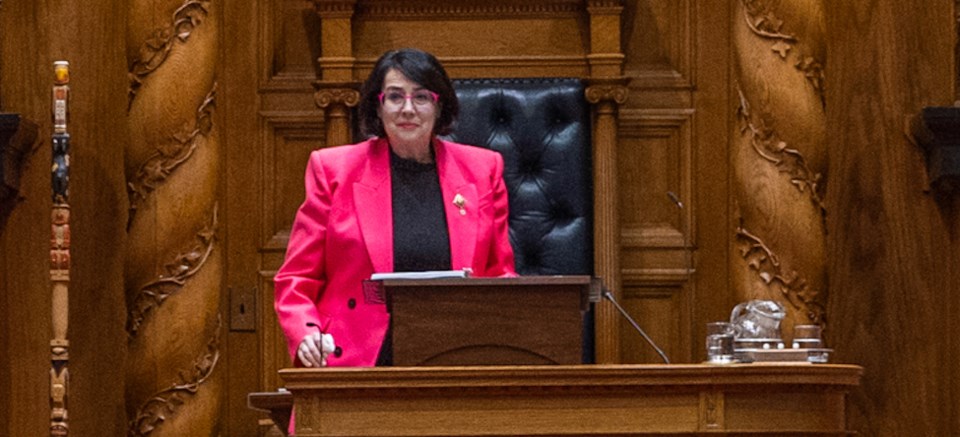A new legislative session has opened in Victoria, with the BC NDP pledging to blow through this year’s multibillion-dollar surplus because it won’t be there next year.
“It will put this year's surplus to work for people to support them now and for the long term … by building more homes that people who live and work in our communities can afford. By giving record support to cities and regions, rural and urban, that have grown quickly,” Lieut. Gov. Janet Austin said, setting forth an agenda that largely recapped recent announcements and initiatives.
While proclaiming that B.C. will do things “differently” to meet the uncertainties of a “chaotic world,” Austin outlined a plan for record spending she described as “stable, secure, stronger and more sustainable.”
Capital investments topped the list, with public infrastructure as well as housing among the top targets for increased spending.
“Your government] will make record new investments to improve public health care and deliver more housing for middle-class families,” she said. “It will ensure we build the hospitals, schools, child care centres, roads and public transit that make us stronger.”
The speech, which lasted nearly 37 minutes, touched on several familiar themes as well as the recent announcements that aim to address them.
A series of five paragraphs acknowledged the crisis in housing affordability facing the province, but promised little new action until fall.
Instead, the speech reaffirmed the recent announcement of a $500 million fund the government says will protect the existing rental stock rather than create new units. The fund is designed to help not-for-profits buy older multifamily buildings rather than well-capitalized institutional investors that industry sources indicate accounted for just 12 per cent of rental purchases in the province last year.
The speech also noted last November's pledge under the Housing Supply Act to enforce housing targets for fast-growing municipalities and the announcement Jan. 16 of a housing hub to streamline permitting processes for residential development.
The future will see the province double-down on those initiatives, Austin said.
“In the months ahead, your government will make major new investments to increase housing and services near public transit hubs around the province. It will also launch a refreshed housing strategy,” Austin said. “In the fall session, after working with local governments, homebuilders and communities, new laws will be introduced to turn that strategy into new affordable homes; more homes for middle class families instead of profit for speculators, more homes for seniors, more homes and support for people with the greatest needs.”
The cost of these investments will likely figure in the provincial budget due later this month, but the overall tenor of the Austin’s speech seems poised to discourage for-profit development even though institutional capital often comes from public pension funds.
One of the province’s larger institutional landlords is the B.C. Investment Management Corp., whose real estate interests are represented by QuadReal Property Group. Real estate developer and investor Concert Properties Ltd. is owned by union-backed pension funds.
However, given a report from the Canadian Federation of Independent Business last week that B.C. falls short when it comes to the political will needed to reduce red tape, the government plans to extend its permitting hub for housing to other sectors.
“The changes being made to speed approvals for housing permits will also be applied to other projects, including those in natural resources and tourism,” Austin said. “Even as we work to fix bureaucratic delays, B.C. will continue to have high standards, because that is equally important to our economic future.”
Details have yet to be announced but the permitting hub for housing aims at a coordinated approach to permit approvals that reduce duplication of effort among ministries. The province currently has 21,000 permits in process, of which housing represents five per cent.



